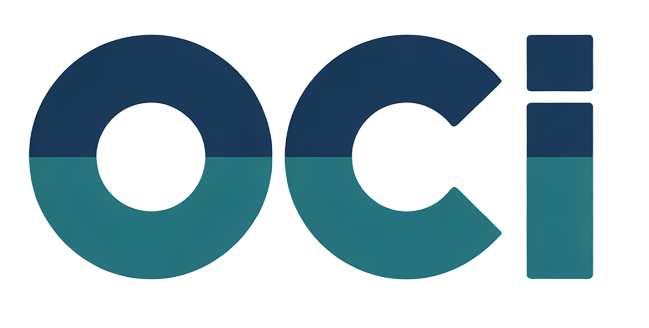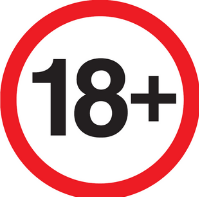If you want to play online casino games with peace of mind, especially in countries like Iceland where the industry isn’t fully regulated, you need to be sure the outcomes are truly fair. Almost every Iceland online casino claims to offer fair play and transparent RTPs. But are they really as fair as they claim to be? And how do they even make sure of that?
It all comes down to a powerful piece of software called a Random Number Generator, or RNG.
But before we get into how RNGs help casinos stay fair, it’s important to understand what they are, how they work, and whether they can actually be trusted. In this article, you’ll learn all that, plus how to pick out casinos that are genuinely reputable yourself. Ready? Let’s go!
What Is an RNG (Random Number Generator)?
As an active online gambler, you’ve probably seen the term “RNG” pop up more than once. But what exactly does it mean?
An RNG is a type of software that generates a sequence of random numbers, as the name implies, and cannot be predicted. These numbers decide what happens in a game, for example, which card is dealt, which slot symbols appear, or which number the roulette wheel lands on.
Every time you press the spin or deal button, the RNG produces a new result. This means no two games are ever the same. It also means there’s no memory of past results and no way to guess what will happen next.
RNGs are used by all online casinos in Iceland, at least the reputable ones. These are the two main types you’d commonly find:
- Pseudo-Random Number Generator (PRNG): This is the most common type. It uses algorithms and a seed number to create random-looking results at high speed. It’s referred to as “pseudo” because it starts with a seed number, but this does not mean it’s not random. The results from PRNG remain unpredictable. Although in theory, you might be able to determine the outcome if you know the seed number. In practice, it’s impossible.
- True Random Number Generator (TRNG): On the other hand, the TRNG does not use any seed number. Instead, it uses physical data (like electrical noise or radioactive decay) to create truly random outcomes. TRNGs are more common in high-security systems than in typical online casinos. This is because they are more complex to implement.
Most online casinos use PRNGs because they are fast, efficient, and reliable when properly tested.
Why RNGs Matter in Iceland’s Online Casino Scene
Online gambling in Iceland is not fully regulated locally, so most players use international sites. As a result, RNGs and independent verification become even more crucial.
Players need to know they are not being cheated. RNGs help by removing human bias and ensuring results are not controlled by the casino. This builds player trust, ensuring that even casual or first-time users can play with confidence.
Without RNGs, online casinos would have no way to guarantee or prove fairness, especially since there is no physical dealer or machine to inspect. RNGs provide the transparency that players in Iceland and across the world demand.
How RNGs Actually Work – A Simple Breakdown
Let’s break it down step by step, so even if you’re new to casino games, you can understand the process:
- A starting value is chosen: This value, called a “seed,” comes from a source that’s difficult to predict. This could be a mouse’s micromovements, the current time, or system performance. It changes constantly.
- A complex algorithm processes the seed: Think of the algorithm as a complex mathematical formula. It transforms the seed into another number, which then becomes the seed, and the loop continues on and on into a long series of unpredictable numbers.
- Numbers are generated at incredible speed: The RNG produces thousands or even millions of numbers every second, even when no one is playing. This is what makes it almost impossible to predict the outcome even if you are aware of the seed number and algorithm.
- One number is selected when you click: Whenever you want to play a game and click “Spin” or “Deal,” the RNG grabs the current number in the sequence.
- That number is mapped to a game outcome: The number is then transformed into an outcome depending on the game. For instance, in a slot game, the number decides the symbol on each reel. While in blackjack, it chooses the next card.
- The process repeats: This cycle continues endlessly. The system never reuses outcomes and doesn’t favor any result. A past outcome also never has any effect on the current or future outcome.
RNGs in Online Slot Machines
While many casino games use RNGs to determine outcomes, online slots are the most closely linked to this technology. They are also the most preferred option for many Icelandic gamblers. Whether it’s simple fruit machines or feature-rich video slots, they all rely on RNGs to create each spin’s result.
Each symbol on the reels has a digital value. The RNG selects numbers that determine which symbol to display on each reel. Because this process is random, no player can predict or control the outcome.
Even if you play the same slot 100 times in a row, every spin is completely unrelated to the one before it. You can’t “warm up” the machine or “time it right”: those are myths. This is what makes online slots fair.
RNGs in Table Games, Video Poker, and More
As mentioned in the previous section, RNGs are not limited to slots alone. They also power other casino games:
- Blackjack: The RNG decides which cards are dealt to the player and the dealer.
- Roulette: The RNG picks the winning number and color on a virtual wheel.
- Baccarat: Each hand is determined by the RNG in real-time.
- Video Poker: The cards drawn and replaced are all randomly selected by the RNG.
- Bingo & Keno: The RNG picks the numbers in a draw.
In short, if the game isn’t being played with a live dealer, it almost certainly runs on RNG technology.
Fairness, Audits, and Certification
It’s not enough for a casino to say, “Our games are fair.” That’s why trusted online casinos work with third-party testing labs to verify their RNGs. These labs include eCOGRA, iTech Labs, GLI (Gaming Laboratories International), and TST (Technical Systems Testing).
They run thousands of simulations to ensure the RNG creates statistically fair results. They also look at:
- The randomness of the number sequences
- The mathematical models behind the games
- Return to Player (RTP) rates
- Game integrity and fairness
The auditing process is rigorous, and these labs don’t issue their certifications to any casino. If you see a certification badge from one of these names on a casino’s website, it means the games have passed their fairness tests and that their RNG is truly fair.
How RTP Relates to RNGs
RTP, or Return to Player, is the percentage of total bets a game pays back to players over time. For example, a slot game with 95% RTP will return €95 for every €100 wagered over a long period.
While RNG and RTP are related, it’s important to understand that they are not the same thing. In simple terms:
- RNG handles the randomness of each result
- RTP is the long-term payout expectation built into the game
A high RTP means better odds for the player in the long run, but the RNG ensures no one can predict or control the short-term outcomes. Together, they help create a balance between fairness and house edge.
RNGs vs. Live Dealer Games
In live dealer games, real humans deal cards or spin wheels on video. These games do not use RNGs for outcomes. Instead, the results are based on actual physical events captured on camera.
However, some aspects of the live casino, such as shuffling cards in virtual versions or dealing side bets, may still use RNGs for speed or efficiency.
In both cases, fairness still applies. Live casinos adhere to strict rules, and their video feeds are closely monitored for security. But if you’re playing a digital-only version of blackjack or roulette, you can be sure that RNGs are behind every outcome.
Choosing a Trustworthy Casino with Fair RNGs
Most online casinos in Iceland claim to use RNGs. But can you take their word for it? The only way to be sure the casinos are actually fair is to carefully choose where you go for your online gambling needs. If you’re an Icelandic player looking for a fair online casino, here’s what to watch out for:
- Licensing and Regulation: Since there is no licensing body for casinos in Iceland, choose casinos licensed by trusted international bodies. Some of the authorities to look out for include the UK Gambling Commission, Malta Gaming Authority, and the Isle of Man. And like always, don’t just take the casino’s claim for it. Verify that the license is valid by searching either the license number or the casino’s name on the body’s official website.
- Independent Testing and Certification: Think of these certifications as a two-factor authentication. After confirming that the online casino holds a valid and reputable license, also verify their certifications. These are usually found at the bottom of the casino website. Look for badges or links indicating that the casino’s RNGs are certified by eCOGRA or a similar laboratory.
- Transparent Game Information: Reputable Iceland casinos show the RTP and game rules clearly. This shows they have nothing to hide. If you can’t find this information on the website, feel free to contact their support team for assistance. Avoid online casino websites that are not transparent with their game info.
- Positive Reviews and Player Feedback: Other players are the most trustworthy source for how a casino really is. Look for reviews on trustworthy sites, including social media like X or Reddit. If people are consistently winning or losing in strange ways, that’s a red flag.
Conclusion
Online gambling, though not completely illegal, remains unregulated in Iceland. This means it’s up to players to go the extra mile to keep themselves safe. Part of this includes understanding important terms like RNGs and how they keep gaming fair. By staying informed, you’re able to choose reputable casinos in Iceland and enjoy your games with peace of mind.
So next time you play a slot, blackjack hand, or roulette spin, remember, there’s a powerful little program working hard behind the scenes to keep your game honest. Happy gaming!






